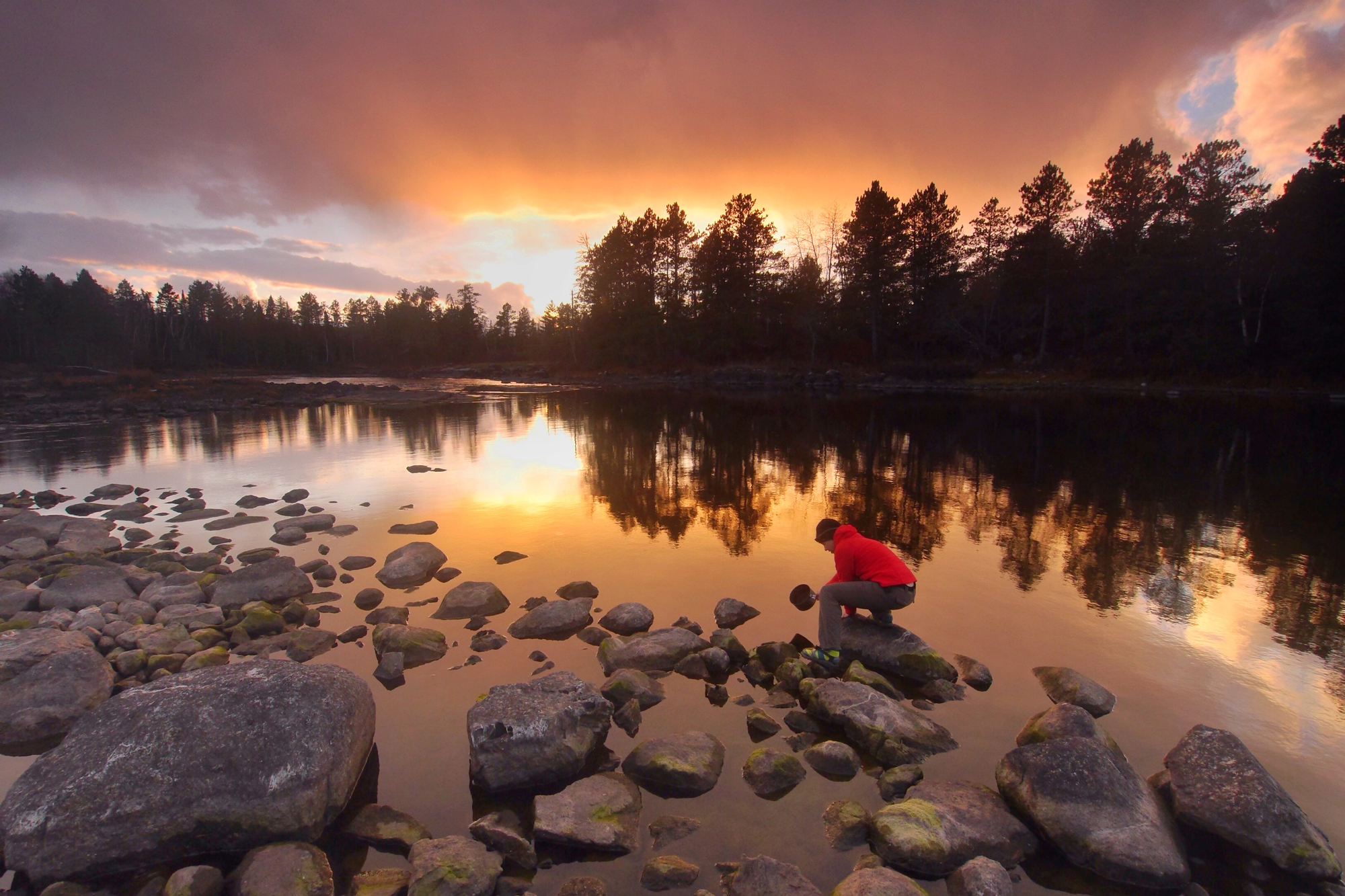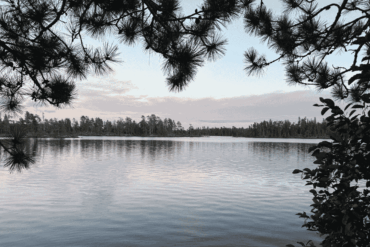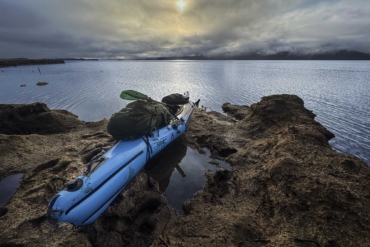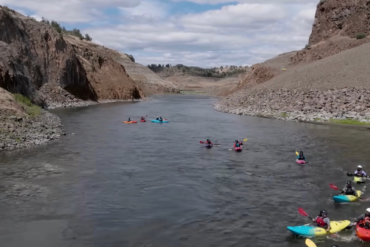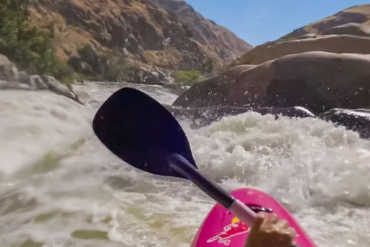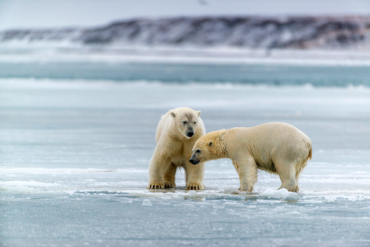Environmental groups cry foul on the U.S. government’s decision to open Rainy River watershed to mining interests. They say it ‘broke its word.’
Several months ahead of an agreed-upon two-year moratorium on any mining near the Boundary Waters Canoe Area Wilderness (BWCAW), Agriculture Secretary Sonny Perdue announced the USDA was canceling its environmental impact assessment in the area.
Superior National Forest Mining Leases Open
The move allows the Trump administration to grant mining leases within 365 square miles — about 234,000 acres — of Superior National Forest. This land sits atop the BWCAW watershed.
The announcement, made last week, comes 15 months after Perdue affirmed the USDA and U.S. Forest Service’s (USFS) commitment to a full two-year study on the potential harms to the environment resulting from mining in the area. Originally, the USDA planned to submit the full study findings to Secretary Zinke for consideration before lifting any ban.
“It’s our duty as responsible stewards of our environment to maintain and protect our natural resources,” Perdue said in a statement. “At the same time, we must put our national forests to work for the taxpayers to support local economies and create jobs. We can do these two things at once: protect the integrity of the watershed and contribute to economic growth and stronger communities.”
But opponents point to both environmental and economic studies that showed negative impacts from mining within Superior National Forest. And they note vehement public opposition the USFS received during a comment period on the issue in 2016.
“The Trump Administration broke its word to us, to Congress, and to the American people when it said it would finish the environmental assessment and base decisions on facts and science,” said Alex Falconer, executive director of the Campaign to Save the Boundary Waters. “This is nothing less than a giveaway by the Administration to a foreign mining conglomerate whose owner just happens to be Ivanka Trump and Jared Kushner’s landlord.”
Falconer was referring to Chilean mining firm Twin Metals. The company stands poised to open the first mine in the area.

Mining Near BWCAW Opens
By lifting the ban, the Trump administration may soon issue mineral leases to mining companies. Both Twin Metals and PolyMet have interests near the BWCAW. The latter is on track to open the state’s first copper-nickel mine located just outside the Rainy River watershed. And this is not without controversy.
Those companies and others have their sights set on what some believe is one of the world’s largest untapped deposits of precious metals. But getting at those metals has raised numerous concerns. These have impeded mining near the BWCAW since prospecting began there nearly 60 years ago.
The danger, mining opponents argue, is that copper-nickel mining can create sulfuric acid and other toxic chemicals. Those substances could leech into the ground and waterways and wreak havoc on ecosystems.
But mining companies defend the process as safe. They claim they have protocols in place to prevent such chemicals from entering the ecosystem.
Under Obama, the potential risks were deemed too great. The administration proposed a 20-year moratorium on mining and prospecting near the BWCAW pending the results of the a temporary ban and impact study.
But that changed under President Trump after Interior Secretary Ryan Zinke renewed Twin Metals’ leases near the BWCAW, leases the Obama ban would have allowed to lapse.
BWCAW Mining: Environment vs. Jobs
Trump, Zinke, and other supporters say opening the area will create thousands of jobs and inject billions of dollars into northern Minnesota’s lagging economy. They also note that the area in question sits adjacent to the BWCAW, not in it.
“This action upholds what Minnesotans who believe that a mining economy can coexist with a treasured environment have been saying for nearly two years,” Nancy Norr, chair of Jobs for Minnesotans, told Minnesota Public Radio. “This is a significant win for our way of life in Minnesota.”
However, opponents note the potential harms to the 1 million acres of America’s most-visited wilderness area. They also stress the mining’s disruption of the state’s growing outdoor recreation economy:
“Along with impacting the hundreds of thousands of individuals who visit the Boundary Waters each year, this decision will hurt the thousands of people whose livelihoods and economic well-being has been built on a thriving outdoor recreation economy in the region,” said Peter Marshall, director of communications for Friends of the Boundary Waters.
They point to Harvard study released this year that found BWCAW mining will likely have an overall negative impact on the local economy. The study expects mining would harm local businesses, tourism, and real estate.
In the study, researchers noted, “We reviewed the relevant literature and conclude that our findings are consistent with the literature, most notably the history of boom-bust economies associated with resource extraction that leave the local economy worse off.”

